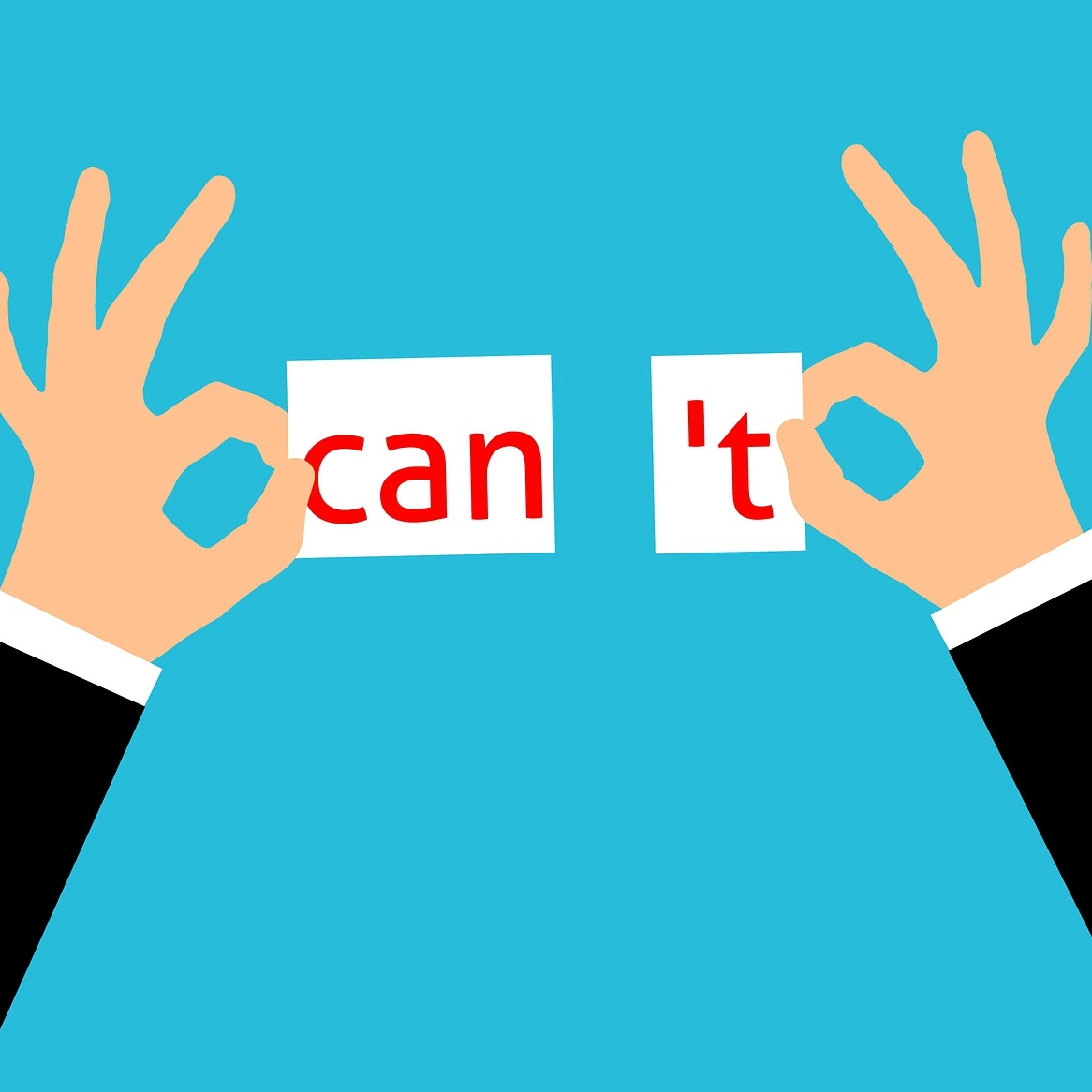I can't work anymore legal guide
What to do when you can't work due to injury or illness?
Are you struggling to make ends meet because you can’t work anymore? You are not alone. Many everyday Aussies have had to stop working in their usual job for various reasons, including physical or mental disabilities like depression, anxiety, PTSD and more.
This difficult time in your life can be frustrating and stressful for you and those around you. It’s likely you have bills to pay, like medical treatment costs or psychiatric therapy. But you cannot earn the income to keep your life on track.
Don’t fret. The good news is you have legal options to find a source of income. Depending on your circumstances, you could claim your TPD benefits contained within your Superannuation insurance policies. Many Aussies are unaware they have insurance coverage when they can’t work anymore.
Read on to understand your options when you cannot earn an income because you cannot work.
It’s free to know if you can claim insurance benefits. For immediate support Call Now 1300 873 252 or email us >
Claiming TPD when you can't work
About nine million Aussies have TPD insurance coverage in Australia, and a few hundred thousand claim their TPD benefits yearly. Total and Permanent Disability insurance aims to provide a safety net when you most need one.
Sometimes, the unanticipated happens, and you find yourself in a challenging situation. Maybe you have had an accident on the road, been injured in a public place or been physically or mentally harmed by your job. How you acquired your medical condition is no consequence for a successful TPD payout. The only consideration is that you are physically or mentally unable to do your regular job or one for which you have experience and training.
A good TPD claim lawyer will help you understand if you have a claim and your legal options. Aussie Injury Lawyers is a specialist insurance law firm, and our team has substantial expertise with insurance disability claims. It’s free to know where you stand.

Can't do my job or don't want to do my job
There is a difference between not wanting to do your current job any longer and not being able to do your current job. If you don’t feel like you want to go to work, something more significant is happening in your life. You may like to chat with someone else about your situation until you understand the bigger picture and how you can take steps to change your attitude.
For example, you may have been in your current occupation for 20 years and don’t want to do it anymore because you have lost motivation. In this case, you could change your career or find another way to reignite your desire to work.
Can't Physically do my job anymore
You have options when you are no longer physically able to perform your job. In this case, you could
- Ask your employer to make reasonable adjustments to accommodate your medical condition.
- Transition to a new role with the same company
- Learn to do a new job that typically requires study.
If you have at least one superannuation account, you could also claim TPD insurance benefits and receive a lump sum payout. In this case, you may not need to work again.
I can't work due to career burnout
Burnout is a specific kind of job-related stress. It’s when you feel physically or emotionally exhausted at the end of the day but don’t necessarily know why. Feeling burnt out is not considered a medical condition. However, you could have a psychological illness like depression linked to your burnout. Medically diagnosed depression is a recognised illness associated with several factors in your life, not simply your job.
Signs of burnout include:
- Your attitude to work has changed
- You are reluctant to go to work
- Once at work, you have trouble getting started
- Constant feeling of exhaustion
- Trouble concentrating
- Lack of achievement
- You are using substances to try and improve your mood
- You have poor sleep
If this is how you feel, you should seek medical assistance and see if you have a diagnosed condition such as depression and anxiety.
I can't work due to mental illness
Australian workplace law protects against workplace discrimination because of a physical or mental health issue. The Fair Work Act was launched in 2009, and since then, issues concerning disability at work have been their leading source of complaints. Mental illnesses, including anxiety and depression, are regularly featured in these complaints. People often cite a lack of empathy and discriminatory behaviour as factors leading to a deterioration of their condition. If you are in this situation, you could contact the Fair Work Ombudsman.
Trying to work whilst suffering from a psychological disorder is challenging. The problem is so significant that stress-related workers’ compensation claims have increased 100% over the last few years. It is common for employees to take medical leave for reasons relating to their mental health.
Recognised Mental Health Condition
Suppose you had a recognised mental health condition from your current job, like PTSD, anxiety or depression. In that case, you could be diagnosed as unable to continue in your usual position and be eligible to make a disability claim. Your psychological disorder does not have to have been created by your work.
Making a successful disability claim for mental illness doesn’t rely on how you were mentally injured. Rather, the crucial factor is that the psychiatric or psychological condition prevents you from working.
When your mental health becomes so dysfunctional that you cannot work anymore in your regular job, you could claim your TPD benefits due to a mental illness. Our lawyers and solicitors can guide you through the legal process step by step.
Please talk with a close friend, your family, or a therapist for guidance on managing your feelings if you believe you need mental health support.
I can't work due to depression
Everyone has times when they are not at their peak, and depressive thoughts enter their daily life. However, major depressive orders can be debilitating. The World Health Organisation states that depression is the number one cause of disability. In this situation, it is crucial to understand you have a mental health condition and should seek professional help.
It is common for people to think that depression is simply having a negative outlook on life. You are not taking pleasure in your life and have low self-esteem. This behaviour would indicate you had a mild depressive disorder.
Severe depression is significantly different. In this circumstance, you are essentially mentally crippled, unable to focus, with no appetite and disturbed sleep. Major depression can alter your hormone levels and the way you think.
When severe depression stops you from being able to work, you should speak with one of our insurance claim lawyers to understand how we can help you get financial support.

I can't work because of anxiety
The Australian Bureau of Statistics says that anxiety disorders are more common in Australian workers than depressive disorders. Around 13% of Aussies suffer from an anxiety-related mental issue. Feelings of anxiety can be the outcome of a complicated intersection of multiple factors in your life, your job being just one of them.
Anxious feelings are generally defined as dysfunctional thinking generated by persistent fear and worry concerning everyday situations. If you have anxiety issues, you might notice your heart rate accelerates, breathing faster, and energy depletes rapidly, so you feel fatigued.
Several types of anxiety-related mental disorders include panic disorder, social anxiety and phobias. Workplace anxiety can be connected to harassment, bullying, excessive workload, low remuneration, unclear responsibilities, numerous deadlines, etc.
Anxiety can seriously affect people’s ability to function at work and earn enough money to cover expenses. It can also cause a variety of other problems in their personal life. If you are medically diagnosed with an anxiety disorder, and it’s stopping you from working, speak with our experienced lawyers and solicitors to understand your options. It’s free to be sure.
I can't work due to a disability
If you can no longer physically do your job because of a disability, some options are available. For example, you could find a new job suited to your current skills and physical capability. You could study for a new occupation and then apply for a new position.
Depending on the nature of your disability, your existing employer might be able to make some reasonable adjustments to your current work tasks to facilitate your return to work. Alternatively, your employer may be able to give you a different job role that fits your new capabilities.
Suppose you acquired your disability due to an accident at work (or associated with your job). In that case, you could have a workers’ compensation or WorkCover claim, including a lump sum payout option. You can still make either of these claims if you are employed and working. To qualify for a superannuation TPD claim, you must have already ceased working due to your medical disorder.
Income Protection and TPD Insurance Claims
If your disability stops you from working in your regular job, you could also make an income protection claim or a TPD Claim. TPD insurance should be contained within your Superannuation fund and can be a substantial sum of money. Many Aussies have a limited understanding of their Super insurance policies or how to qualify to receive an insurance payout.
You should contact our disability claim lawyers now if this is your situation. There is no charge for your comprehensive case assessment. Our team can let you know if you have one or more claims and what they might be worth.
Generally speaking, all employees (except casual workers) have personal leave options when they cannot work, including sick leave and annual leave. After exploring all your paid options, you could also ask for unpaid leave at your employer’s discretion. Furthermore, in Australia, your boss generally cannot terminate your employment if you are absent for up to three months and provide evidence of your condition.
If you have a work-related illness or injury, you could also claim workers’ compensation and receive WorkCover benefits, covered in the following section.
You could seek WorkCover benefits if your illness or injury happened at work or is otherwise work-related. Sometimes, you can make a permanent impairment claim or sue for common law damages, and receive a lump sum settlement.
Successful work injury payouts rely on evidence. Hence, hiring a workers’ compensation lawyer is vital to achieving the best outcome.
When you can’t do your job, you could get financial assistance from Centrelink by claiming disability benefits. Generally, Centrelink pays a disability support pension when a psychiatric, physical or intellectual condition is likely to continue for two years and prevents you from working.
However, the lump sum payment you receive for a successful TPD claim will likely assist much more than this government-funded income.
How Aussie Injury Lawyers Can Help
If you find yourself in a situation where you can no longer work due to an illness or injury (regardless of how it was acquired), it’s essential to take the necessary steps to protect your future. You should contact our legal team for a free consultation.
We understand this is a difficult time and are here to help. With many years of experience supporting injured and ill Aussies, we know what needs to happen to get you the compensation and benefits you deserve. Don’t wait any longer – contact us today for a free consultation. It’s free to get started, and there are no legal costs until you win your case. Call Now 1300 873 252 or email us >





